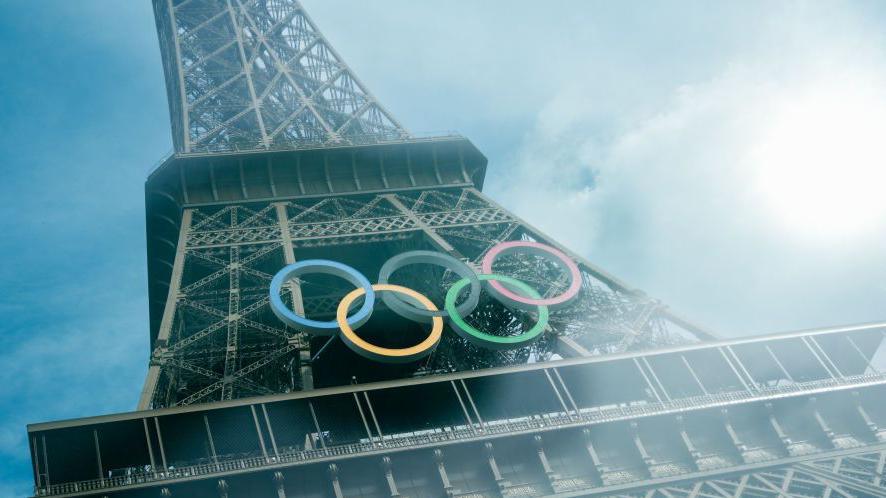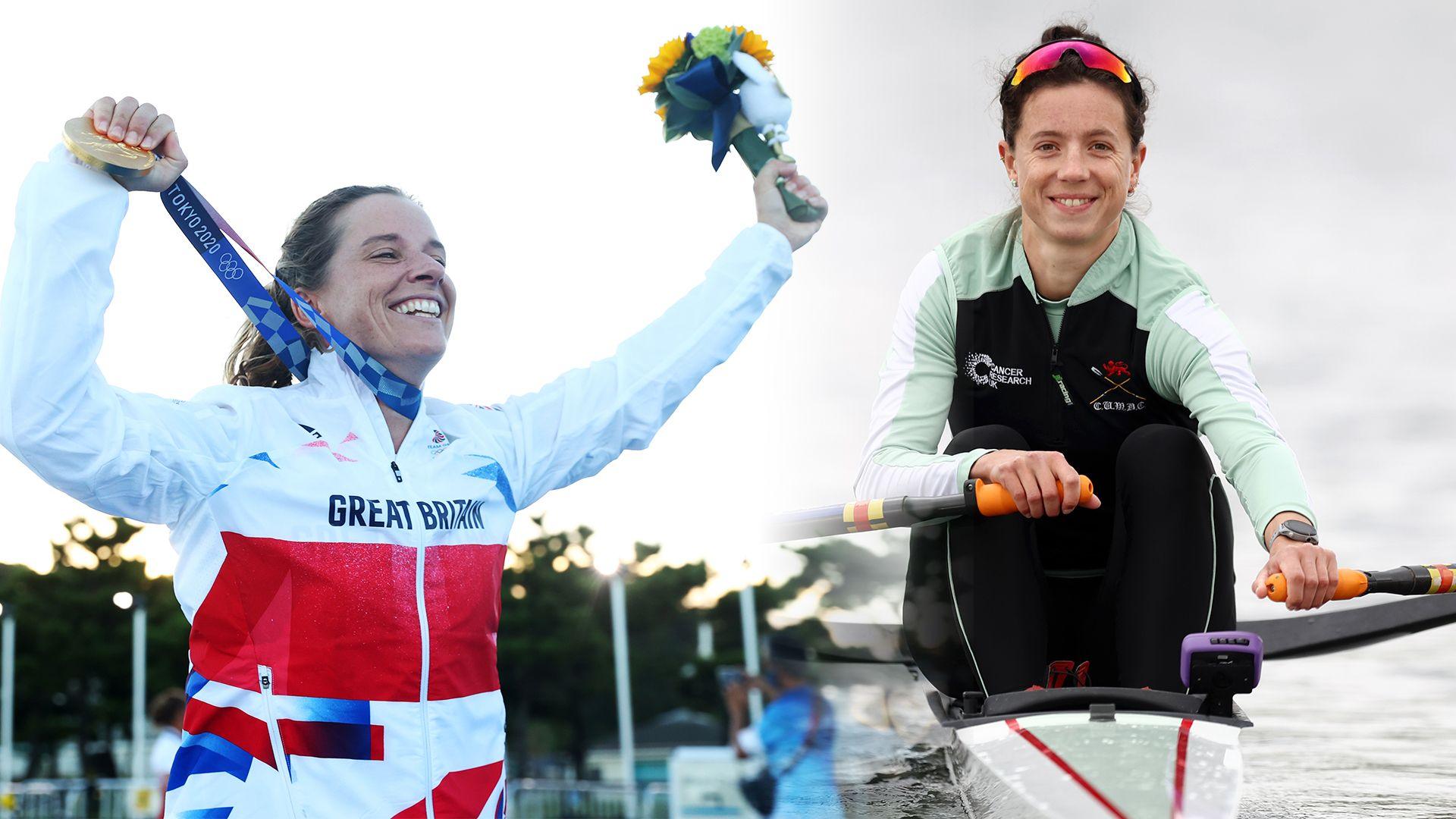Could Paris be too hot to hold the Olympics?

Researchers have questioned whether future Olympic Games should take place over summer
- Published
A group of scientists and athletes have said that warmer temperatures might make it more difficult to hold the Olympic Games during the summer.
A new report advises changing the schedule of the sports competition so that it can take place over cooler months, or at cooler times of the day, for example, in the evening.
It has been published by the British Association for Sustainable Sport and FrontRunners, ahead of the Paris 2024 Olympics that start in July.
Researchers say that these Games could have an increased risk of extreme heat, which could be dangerous for the athletes taking part.
Get ready for the Games:
All you need to know about the Paris 2024 Olympics
- Published24 January 2024
Paralympics 2024: Everything you need to know
- Published28 August 2024
Check out Great Britain's kit for the Paris Olympic and Paralympic Games
- Published19 April 2024
What does the Rings of Fire Olympics report say?

Team GB sailor Hannah Mills and rower Imogen Grant were among the athletes who took part in the report
To make the report, the University of Portsmouth's climate scientists and heat physiologists - people studying the effect of heat on living creatures and their bodies - spoke to a number of Olympic athletes.
They looked at data from the past 100 years since the Games were last hosted in Paris and France in 1924, and found that temperatures had increased by an average of 3.1C for the Olympic months of July and August.
The report says that the increased risk of extreme heat as well as humidity - a measure of how much water there is in the air - means that the body can struggle to cool down - particularly during endurance sport - like marathons.
If nothing is done to stop these rising temperatures, Kaitlyn Trudeau, senior research associate at Climate Central, said: "It will make it nearly impossible, if not completely impossible, to host summer Olympics."

Team GB rugby sevens player Jamie Farndale has spoken out about struggling in hotter temperatures
A number of athletes have spoken in the report about struggling with competing in hot temperatures in hot conditions.
Team GB rugby sevens player Jamie Farndale says that extreme heat "takes a lot away from you" and also creates a worse game for fans watching.
Jamie said: "I found myself in these conditions where you're literally trying to get through the next phase of play, your hands are sweaty, you can only concentrate on catching the ball, so I think it makes a worse game."
Sebastian Coe, president of World Athletics – and a two-time Olympic gold medallist – said the impact of global heating on athletes “can be varied and wide-ranging”, from smaller performance-impacting issues like sleep disruption and last minute changes to event timings, to severe health impacts such as heat related stress and injury.
As well as suggesting a reschedule of future summer Olympics, the report advises more rehydration and cooling strategies to be built into athletes' plans and increasing awareness of the issue of overheating within the sporting industry.
WATCH: Meet the kids swapping PE for Olympic sports
Why are temperatures getting warmer?
You might not think it with the recent cold and wet weather in the UK, but temperatures are on the increase globally.
In March, it was reported that record high world temperatures had been recorded for nine months in a row.
According to Professor Celeste Saulo, from the World Meteorological Organization, "heat-trapping greenhouse gases" are largely responsible for warmer temperatures worldwide.
Greenhouse gases, like carbon dioxide and methane, are released when burning fossil fuels, and trap heat in the atmosphere, which causes the Earth's temperatures to increase.
Jamie Farndale is keen to make sure that these temperatures don't get even hotter, saying: "We need to fight for every tenth of a degree that we possibly can."
